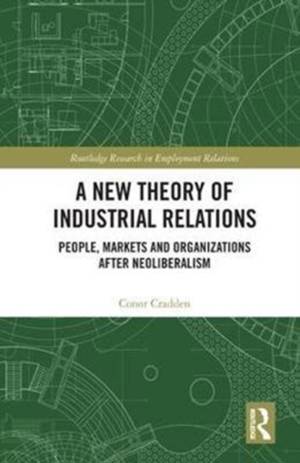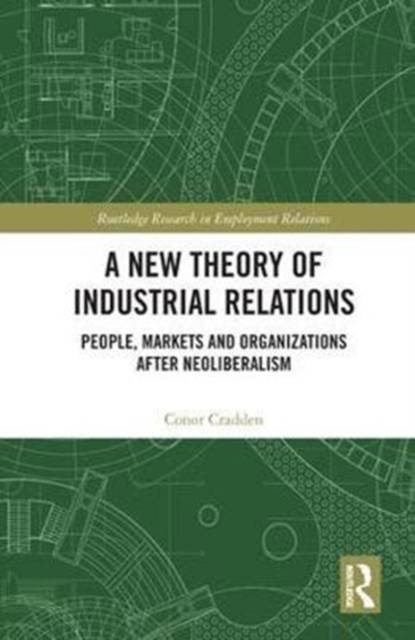
- Retrait gratuit dans votre magasin Club
- 7.000.000 titres dans notre catalogue
- Payer en toute sécurité
- Toujours un magasin près de chez vous
- Retrait gratuit dans votre magasin Club
- 7.000.0000 titres dans notre catalogue
- Payer en toute sécurité
- Toujours un magasin près de chez vous
A New Theory of Industrial Relations
People, Markets and Organizations After Neoliberalism
Conor CraddenDescription
Most existing theoretical approaches to industrial relations and human resources management (IR/HRM) build their analyses and policy prescriptions on one of two foundational assumptions. They assume either that conflict between workers and employers is the natural and inevitable state of affairs; or that under normal circumstances, cooperation is what employers can and should expect from workers. By contrast, A New Theory of Industrial Relations: People, Markets and Organizations after Neoliberalism proposes a theoretical framework for IR/HRM that treats the existence of conflict or cooperation at work as an outcome that needs to be explained rather than an initial presupposition. By identifying the social and organizational roots of reasoned, positively chosen cooperation at work, this framework shows what is needed to construct a genuinely consensual form of capitalism. In broader terms, the book offers a critical theory of the governance of work under capitalism. 'The governance of work' refers to the structures of incentives and sanctions, authority, accountability and direct and representative participation within and beyond the workplace by which decisions about the content, conditions and remuneration of work are made, applied, challenged and revised.
The most basic proposition made in the book is that work will be consensual--and, hence, that employees will actively and willingly cooperate with the implementation of organizational plans and strategies--when the governance of work is substantively legitimate. Although stable configurations of economic and organizational structures are possible in the context of a bare procedural legitimacy, it is only where work relationships are recognized as right and just that positive forms of cooperation will occur. The analytic purpose of the theory is to specify the conditions under which substantive legitimacy will arise. Drawing in particular on the work of Alan Fox, Robert Cox and Jürgen Habermas, the book argues that whether workers fight against, tolerate or willingly accept the web of relationships that constitutes the organization depends on the interplay between three empirically variable factors: the objective day-to-day experience of incentives, constraints and obligations at work; the subjective understanding of work as a social relationship; and the formal institutional structure of policies, rules and practices by which relationships at work are governed.
Spécifications
Parties prenantes
- Auteur(s) :
- Editeur:
Contenu
- Nombre de pages :
- 208
- Langue:
- Anglais
- Collection :
Caractéristiques
- EAN:
- 9781138124615
- Date de parution :
- 05-12-17
- Format:
- Livre relié
- Format numérique:
- Genaaid
- Dimensions :
- 152 mm x 229 mm
- Poids :
- 419 g

Les avis
Nous publions uniquement les avis qui respectent les conditions requises. Consultez nos conditions pour les avis.






